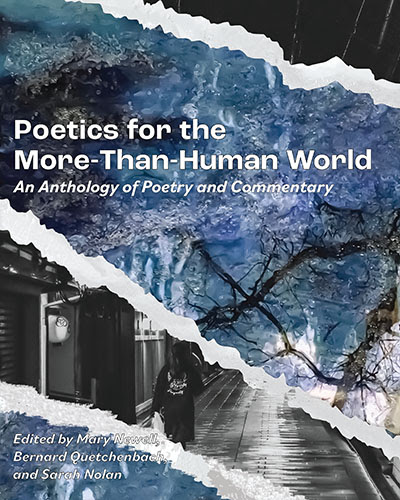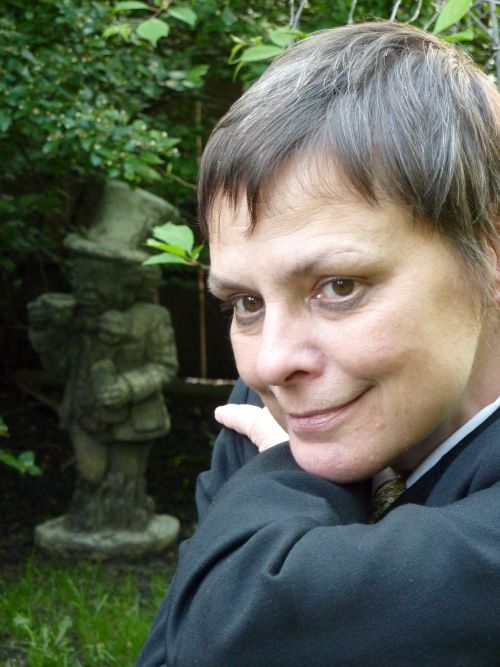Disappearance of the Outside
Here in Alberta the oil and gas industry is a large, brash, ubiquitous Circus Maximus. The land is divided into formations, classified according to age, rock type, fossil assemblage, oil or gas traps and production value. A battalion of trucks rumbles by: Exalta Transport, Acropolis Steel, Spartan Controls. All around me, the symbols—and sounds—of industry, empire and control. I worked in the “oil patch” and eventually felt compelled to tackle the intertwined subjects of environmental devastation, loss of individual agency and the relentless capitalism that fuels Big Industry.
I’m attracted to working with found texts, as my writing is usually tied to some kind of inquiry. What would happen if I placed words or phrases from one discourse with those from a seemingly opposing or unrelated discourse? This makes me feel like I’m working in a laboratory, mixing chemicals. It also brings me into the text, a way of implicating myself, my hands coated in language.
These experiments became a book, Endangered Hydrocarbons, published by BookThug (now Book*hug) Press in 2015. All of the poems in this project are derived from texts generated by a multinational oil company, spliced with a variety of found material. I chose texts for their unexpected connections and treated them like crude oil; excavating, drilling, mixing them to emulate processes used by the industry. It seemed I had found a real sense of mission and assumed I would carry on writing in the same vein.
Flash forward to March 2020 when the COVID-19 pandemic settled over the world. This was a time of strangeness, exile and peril on personal, cultural and political levels. Also disillusionment. Instead of seeing humanity work together we saw the rise of fascist populism and fall of public institutions, proliferation of conspiracy theories and grifters, Gilded Age hoarding of wealth, cruelty as government policy, the erasure of women from public spaces and so much more.
I chose to feature “redundant” as this is one of my first poems written as the pandemic started to unfold. It marks a shift in my work, from a focus on resource industry capitalism to a more interior world, mapping the psychological dissonance caused by the virus along with the greater issue of climate change. In this poem, and in all my post-COVID writing I have continued working with found texts and I think this poem’s language and boxed-in structure reflect a sense of diminishment and claustrophobia.
My work attempts to explore what I see as a fearful tribal age, rising from a deeply repressed collective panic over climate change, exacerbated by the virus. Some of the questions arising from this work concern how to move forward in this “new normal,” how to keep writing in the face of so much loss. Who am I even speaking to within a greater society that no longer shares a sense of community—or even a common reality?
Most of all how are we experiencing the loss and grief caused by the disappearance of our natural world and biological selves, the marvelous creatures and life forms we should be sharing our lives with. I believe we are all feeling deeply unsettled and that this feeling is creating havoc on our societies and psyches. My work explores how repression of this collective sense of grief can project outward into a virulent millenarianism.
My intention is to show on the molecular level of language how invasive thoughts and beliefs can take hold and change any of us in a time of extreme alienation as the “freedom” slogans become ever louder, more authoritarian and restrictive. Anything to shield us from the knowledge that we are part of the biological world and that life is fragile and can be taken away at any time by forces we never bothered to understand, which are now beyond our control.




